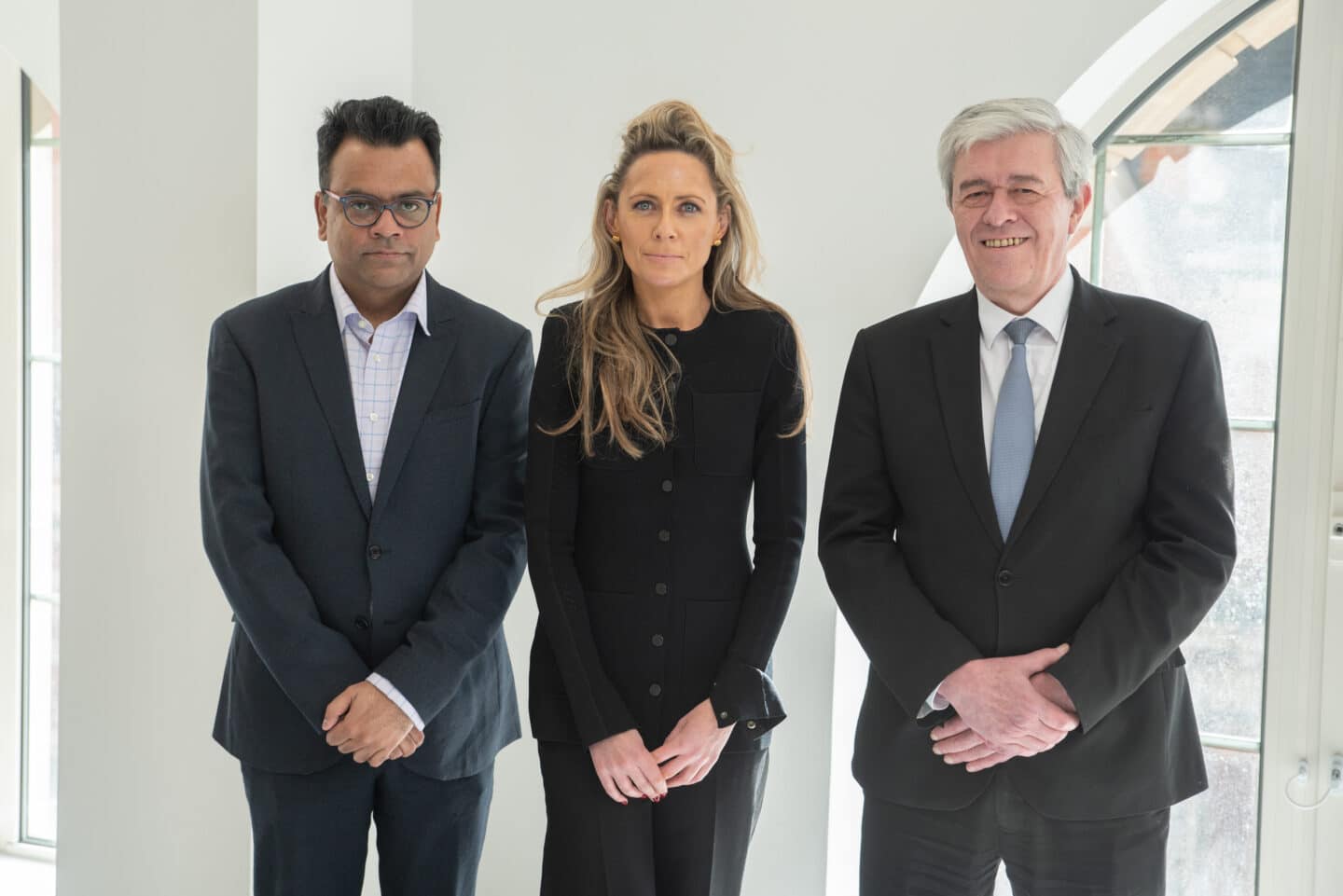From academia to AI innovator with Stanhope AI
with Rosalyn Moran, CEO & Co-founder Stanhope AI
Founder Stories University Edition is a collection of fireside chats with the leading academic founders backed by the AlbionVC team. Having invested in over 30 university spinouts from the leading UK universities including UCL, Imperial College London, University of Oxford and University of Cambridge, the series highlights personal stories of those who made the leap from academia to entrepreneurship.
In this interview Rosalyn Moran, CEO and co-founder of Stanhope AI, shares her journey from academia to the company’s recent £2.3m seed funding round led by us at the UCL Technology Fund, with participation from Moonfire Ventures, Creator Fund, MMC Ventures and other leading angel investors.
Stanhope AI focuses on commercialising Active Inference Theory, which offers a unique approach to artificial intelligence (AI) that differs from traditional machine learning. It aims to develop lean and powerful AI by drawing inspiration from neuroscience to emulate human cognition, offering a more dynamic and interpretable approach.
Recounting her journey, Rosalyn initially delved into generative models during her Ph.D to help understand data differences like those seen in Parkinson’s disease. Despite feeling pressure to commercialise research early, Rosalyn parked the decision to start a company based on the innovative Active Inference Theory as she wanted to see a greater potential and address a larger market.
She then shifted her career trajectory from engineering to neuroscience at various institutions, including Virginia Tech, University of Bristol, and King’s College London. Rosalyn’s collaboration with Professor Karl Friston on generative models to understand brain signals was pivotal to realise the importance of Active Inference Theory in providing a computational framework for understanding brain functions like attention and memory.
Rosalyn founded Stanhope AI in 2021 with Professor Karl Friston (Director) and Dr. Biswa Segupta (Technical Advisor), driven by the belief that machine learning had reached a peak and that there was a need for more creative solutions.
A crucial step was understanding the dynamics within the founding team of the startup, considering the diverse backgrounds and strengths of each member, maintaining focus and accountability while leveraging their technical expertise.
The company secured initial funding, including a grant from the US government, which allowed the team to develop a demonstrator and lay the groundwork for their startup to then progress through later stages.
For those seeking seed funding for their startup, Rosalyn advises to have both patience and tenacity, and accept the need to have numerous meetings before finding real success. Having an initial ally and garnering interest from investors can make the process easier. The supportive and open-minded VC community in London is also noted. Setting realistic expectations regarding valuation and funding goals is vital. Additionally, having a university-affiliated venture fund can provide a valuable network and accelerate the fundraising process, as well as nurture the university ecosystem.
“Here [at UCL] you have a focused fund. I would love to see King’s College London get the same sort of fund… That [investor] experience that allows you to see a little bit around corners is really useful. And then it’s the network.”
Prof. Rosalyn Moran, CEO, Stanhope AI
Rosalyn reflects on the diversity of her experiences across various institutions and academia that led her to her current role as a CEO, comparing her founding journey in the US, where individualism is prominent, to the UK, where a more committee-based approach is common.
Understanding national imperatives and interacting with funding agencies was critical.
Not only does academia foster entrepreneurial skills – as academics often operate like business owners, managing labs, securing grants, and advancing knowledge – it also facilitates the transition from research to commercialisation, bringing academic ideas into reality through commercial B2B sales.
She underlines how important it is for universities to spread an entrepreneurial spirit among academics and students, through several initiatives like departmental collaborations with organisations such as the Gates Foundation, or the presence of incubators to support startup ventures. Transitioning from academia to entrepreneurship is challenging as the low stress environment of academia turns into huge responsibility when running a startup.
It is essential in this stage to cultivate relationships with stakeholders, including investors and board members, who help shape the company’s direction and provide valuable insights.
Returning to the mission of Stanhope AI, Rosalyn shares that the goal is to develop AI systems with human-like perception. Active Inference enables agents to seek and shape their own data and models of the world, which is better than relying solely on vast amounts of training data.
In the next 2 to 3 years, Stanhope AI envisions advancing its drone technology, transitioning from individual drones to a fleet capable of cooperative actions, such as parking cars or coordinating missions. Collaborating with the German government, they aim to stress-test their models in challenging environments by delivering goods while navigating obstacles like fog and heavy weather.
Excited about the future, Stanhope AI anticipates significant growth and deployment of its technology, with continued support from their partners and looks forward to the journey ahead.
Other news



